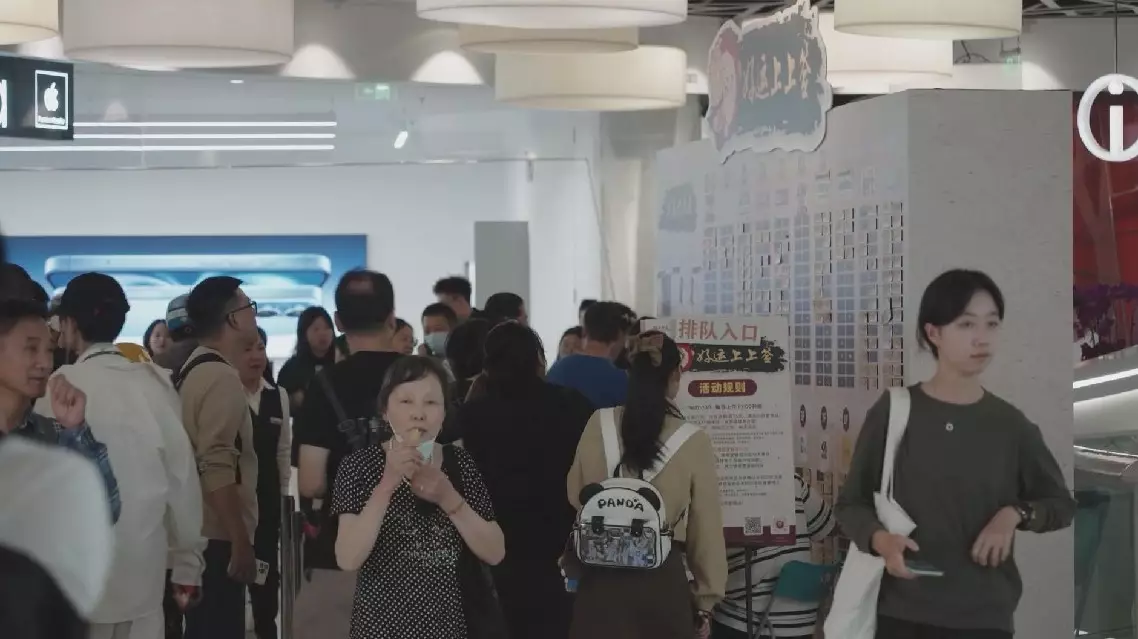China's week-long National Day holiday, also known as the Golden Week, is witnessing a remarkable surge in consumer spending as local governments and businesses introduce various incentives to stimulate the holiday economy and to tap into residents' demand.
In Shijiazhuang, the capital city of north China's Hebei Province, shopping malls are capitalizing on the government's trade-in subsidy policies with retailers offering discounts, cash-back promotions, and free gifts to bring in customers.
"It doesn't matter what type of things you buy, there is a discount for you. That's definitely better than usual," said Du, a resident.
"Thanks to this favorable policy, since September, both the number of customers and orders has been increasing every day," said Yang Can, a store manager.
Shanghai has also launched consumption vouchers for restaurants, hotels, cinemas and sports venues, injecting new vitality into the local economy.
The voucher scheme includes 360 million yuan (51.3 million U.S. dollars) in dining, 90 million yuan (12.8 million U.S. dollars) in accommodation, 30 million yuan (4.3 million U.S. dollars) in movies and 20 million yuan (2.8 million U.S. dollars) in sports events.
"So far in the National Day holiday, our customer flow has increased by about 40 percent compared to regular days. And there are around 10 percent of customers paying for their meals with the 'Shanghai Coupon', which has greatly raised our customer flow," said Hu Xiaozheng, a restaurant manager.
"I spent 257 yuan (36.6 U.S. dollars) including the 50-yuan (7.1-U.S.-dollar) coupon. The vouchers are suitable for promoting consumption, because we would spend more just to meet the cash-back threshold," said Huang, a local resident.
Meanwhile, the Shenzhen International Auto Show kicked off in Shenzhen, south China's Guangdong Province on Tuesday, also the first day of the Golden Week, drawing a throng of passionate residents to visit the show and buy new cars.
The ongoing five-day show drew about 120,000 people to the event on Tuesday alone, generating a revenue of 1.5 billion yuan (around 213.13 million U.S. dollars).
"I think there are lots of models here, you can see any type you want, from new energy vehicles (NEVs) to traditional fuel-powered cars, hybrid and plug-in hybrid. My most intuitive feeling is that the domestic brands are making increasingly better cars," said Liu, a visitor.
Last month, a new round of car trade-in policies rolled out by the local government allows local residents to enjoy a maximum subsidy of 30,000 yuan (about 4,262.63 U.S. dollars) when they scrap their old cars to buy new ones.
This generous offer, coupled with manufacturer discounts, has led to brisk sales at the event.

Vouchers, trade-in policies boost domestic consumption in China's National Day holiday









